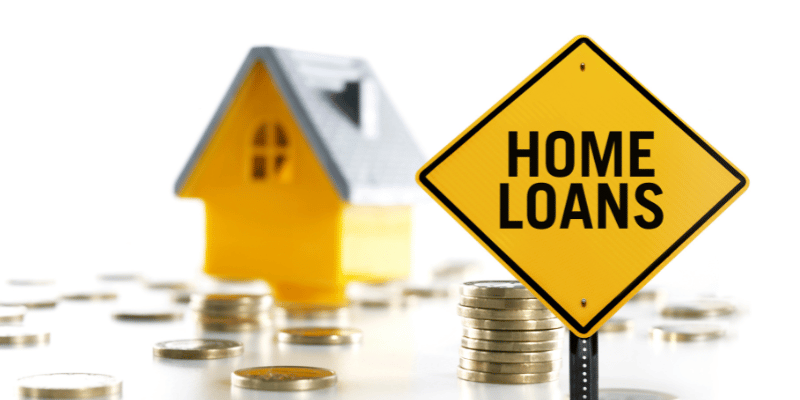Thinking About Taking A Home Loan? Types of Home Loan Interest Rate
5 Mins Read
Published on: 29 June 2021
Last Updated on: 15 November 2024

toc impalement
Your home loan interest rate significantly affects your overall cost of borrowing. Even a slight variation in the interest rates can lead to a massive difference in your loan repayment amount. This is why, when you take out a housing loan, you must choose an interest rate that is best for you.
There are two interest rates on a home loan – floating and fixed. When you take out a housing loan, you must choose between the two, which could be confusing.
Here is a detailed guide to help you pick the correct interest rate.
What Is the Floating Rate of Interest?
As the name suggests, the floating rate of interest changes throughout the loan tenure. Also called adjustable-rate home loans, it is tagged to a benchmark rate and reset occasionally. Whenever the benchmark rate increases or decreases, there is a corresponding change in the floating interest rates.
The following are the advantages of a floating rate of interest:
- Typically, a floating interest rate is lower than a fixed interest rate. Even though it fluctuates based on the market rates, it usually does not exceed the fixed rate of interest.
- You need not pay any prepayment penalty on floating interest rate home loans. As per the RBI mandate, lenders cannot charge a fee if you prepay a floating interest rate loan.
However, due to constant fluctuations, it becomes tricky to make your budget when availing of floating interest rates. There is always a sense of unpredictability about the interest outgo, which can restrict your financial planning.
What Is a Fixed Rate of Interest?
The fixed rate of interest does not change during the tenure. It is usually not affected by fluctuations in market rates or socioeconomic factors. You pay the exact EMI amount every month.
The advantages of fixed-interest rate home loans are –
- It is easier to plan your budget when you know the fixed amount of interest outgo.
- With a fixed rate of interest, you get financial security. Whether you face a dip in income or a salary hike, you know the EMI amount every month and can plan accordingly.
Fixed interest rate home loans have some disadvantages, too.
- The fixed interest rate is typically 1-1.25% higher than the floating interest rate.
- You need to pay the prepayment charges, as there are no rules about waiver of prepayment charges for fixed-interest home loans.
- In the long run, lenders can convert the interest rate from fixed to floating between the tenure. This can disturb your financial plan.
Bonus Section: Step By Step Guide To Home Loan

Getting a home loan is a relatively easy thing out there. However, it can be tedious. Therefore, it is essential to know the exact set of things you need to do to get your loan approved.
Here are some steps that you need to follow for smooth sailing.
Step 1:
The first step towards getting a home loan is understanding the application process.
This is one of the most challenging parts of the journey. Keep all your documents handy. These include address proof, proof of education, residence, etc.
Step 2
Once you finish the first step, you can move to the next step. This step involves paying the processing fee.
Remember that this fee is non-refundable. Hence, it would help if you were sure what you were doing before doing it. Otherwise, you can land yourself in a fix.
Step 3
You must meet the bank official once you finish the first two steps. Please consider this a face-to-face interview that the bank conducts to know their customers better. Therefore, get ready for some intrusive questions.
Step 4
The fourth step is the documentation process. Document verification is the second most stressful part of the loan approval journey. The best part is that this part of the process is similar in all different types of home loans.
Step 5
Even when the loan is approved, you must take your bank representative to the physical site for inspection and verification. This is an important detail that banks take very seriously.
The technical checks are conducted to understand the scale of tour real estate. This is not just exclusive to under-construction properties.
This is similar across the spectrum. Therefore, you do not have to worry about the type of home loan you are going for. Some banks charge a nominal fee. However, this differs from institution to institution.
Step 6
Step 6 is all about the legality of the process. This is an integral part of the whole deal. Towards the end of the journey, the bank would like to establish the property legally.
As a result, the bank would ask for some documents to take care of the legality of the property. As a buyer, you need to be very vigilant throughout this process. This would ensure that you are on the right track.
Step 7
Signing the home loan agreement is the penultimate step in securing a home loan. This step is often seen as the final step. However, there comes another step.
The final step of the whole deal is the loan disbursement part of the entire deal. This is the step where the bank would present you with the money needed for your home. The disbursement process remains the same for different home loan(s) types.
Bottom line

You must assess your needs and financial stability while choosing your interest rate. If you wish to avail of a short-term loan, it is better to opt for a fixed interest rate is better. This is because the market is usually volatile in the short term, and opting for a floating interest rate could make your loan expensive.
Also, it is best to opt for a fixed interest rate if you anticipate an increase in the interest rates soon. Similarly, if you can forecast a drop in market rates and have no set budget, opting for a floating interest rate is best.6
Read Also:


















Comments Are Closed For This Article